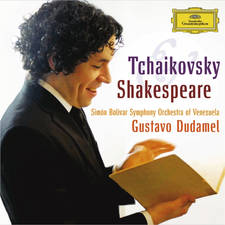Orchestra working with charity to transform dementia patients’ lives through music
8 May 2024, 13:47 | Updated: 8 May 2024, 14:35

Greater Manchester’s mayor Andy Burnham, whose father has dementia, said “Music is often the key to bringing them back there for you in that moment, and that’s why it’s so precious.”
Listen to this article
Greater Manchester has been made the UK’s first Centre of Excellence for Music and Dementia, hosted by British chamber orchestra, Manchester Camerata.
Funding of over £1 million has been committed by Mayor Andy Burnham, the Power of Music Fund and NHS Greater Manchester, allowing Manchester Camerata and the Alzheimer’s Society to continue their music therapy programmes ‘Music in Mind’ and ‘Singing for the Brain’.
The programmes offer musical support to people living with dementia to improve their quality of life, and reduce the need for health and care services.
Manchester Camerata will work with the Alzheimer’s Society and University of Manchester to offer music cafés, helping to take pressure off frontline healthcare staff.
According to the NHS, there are over 940,000 people living with dementia in the UK. Alzheimer’s Society suggests that by 2025 there will be over 1 million people with dementia in the UK, projected to rise to nearly 1.6 million by 2040. Currently, the care of these people in the UK costs over £34 billion per year.
Read more: 80-year-old pianist with dementia moves ‘The Piano’ viewers with love theme for his wife

“This is a place that has always understood the power of music,” Andy Burnham, Mayor of Greater Manchester, told Classic FM about his city.
“This Centre of Excellence is so important to us because it means we can unlock that power of music into more places so more people can benefit from it – so to have a centre of excellence for music and dementia is taking this music city of ours up to the next level.
“We really do need to rethink health in the 21st century. The idea that you can just treat your way out of difficulties into a good life, by endless prescriptions and medication... I don’t think it was ever true, and yet that’s how we’ve been led to think.
“We need to change the way we support people with more social interventions, more activity, and certainly the arts playing a bigger role, music in particular. The impact that it can have for people who have dementia and who love music in their life, there’s just nothing better you can do for them, to reconnect them with that passion.”
The Mayor spoke about how important music provisions are, having seen his father go through dementia.
“You just get these glimpses again of the person you love – and it’s not always there in front of you, but music is often the key to bringing them back there for you in that moment, and that’s why it’s so precious.
“My dad was an avid listener of Classic FM, and it is priceless – honestly, I can’t even tell you how important it is. It brings that person back, helps that person push their disease back and reclaim themselves for those moments. Music therapy should be available everywhere, in every setting. It should be a mainstream offer, not just a project here or a project there.”

The successful bid will see the Camerata and Alzheimer’s Society run four weekly music cafes (two ‘Music in Mind’ and two ‘Singing for the Brain’) in each of the 10 Greater Manchester boroughs.
Together they will collaborate with the University of Manchester and the NHS to undertake anonymised data-driven research into the impact and power that these music sessions have for people living with dementia and the way in which they can reduce pressure on hard-pressed frontline NHS and social care staff.
Manchester Camerata and Alzheimer’s Society will recruit, nurture and train a volunteer and community workforce of 300 ‘Music Champions’ who will be trained to deliver the Music Cafes, helping to support over 1000 people living with dementia in Greater Manchester across three years starting from October 2024.
The research and data analysed by the University of Manchester will demonstrate the impact of bringing music support into dementia care, and how this model could be rolled out across the UK to help save costs for the NHS.


































